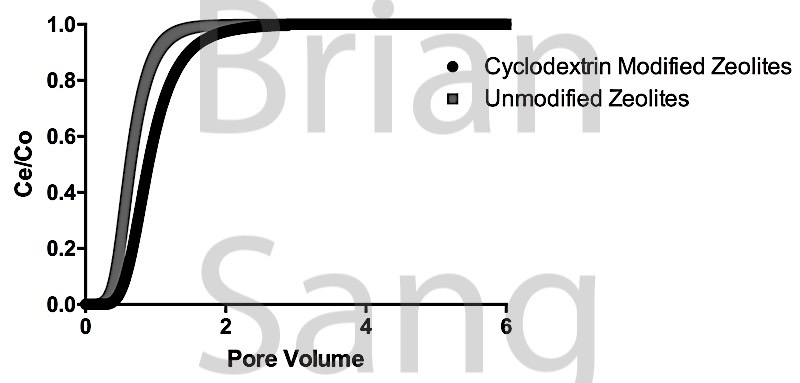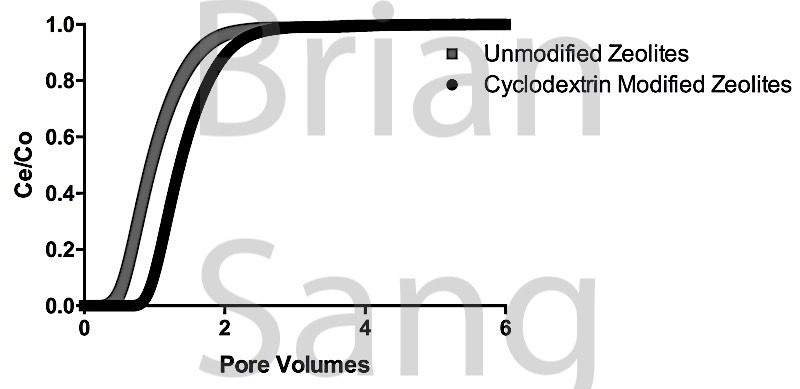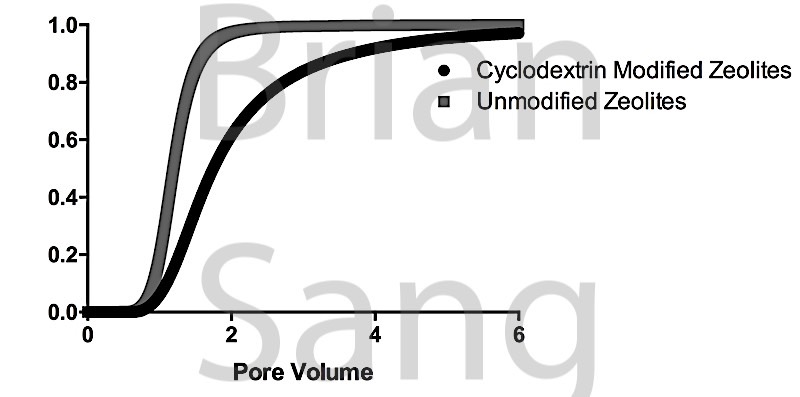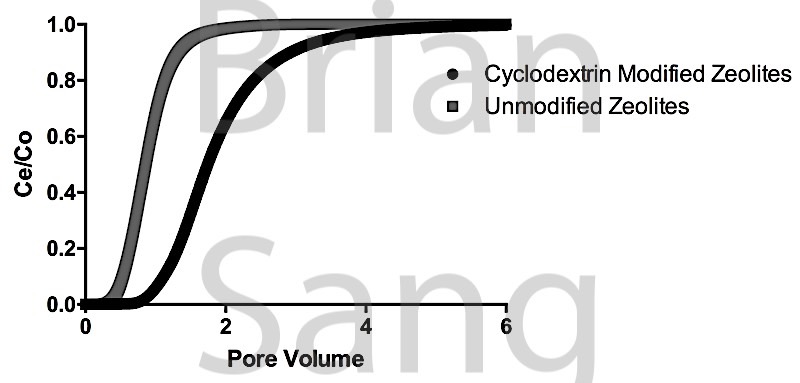What is Cyclodextrin
Cyclodextrin a starch deriviative, is commonly used for capturing molecules in a variety of media. It can be described as a “molecular cage” which captures different molecules in its hydrophobic cavity.
Significance of Zeolites
Zeolites are needed in order to make cyclodextrin deveritives insoluble in water. Without Zeolites, the cyclodextrin would simply break down in the water. Zeolites are ultraporous rocks to which cyclodextrin is attached to.
Cyclodextrin Modified Zeolites
Cyclodextrin is used to capture/absorb organic contaminants.
The following shows how Cyclodextrin was demonstrated by a member of our team to be able to remove dissolved volitile organic compounds, including 1,2 dichlorobenzene, dichloromethane, tetrachloroethylene and trichloroethylene in comparison to regular cyclodextrin. This data shows that the zeolites from the cyclodextrin modified zeolites does not inhibit the cyclodextrin capabilities with adsorbing organic compounds which therefore shows that cyclodextrin modified zeolites has the potential of extracting methane from water. These findings are confirmed by studies from Dr. Flowers, Dr. Hartman, and Dr. Mohammadi.

Comparision of removal of Dichloromethane in water

Comparision of removal of 1,2 dichlorobenzene in water

Comparision of removal of Trichloroethylene in water
